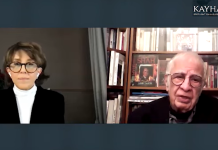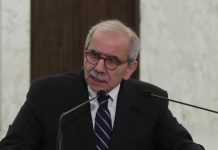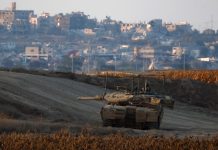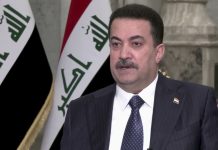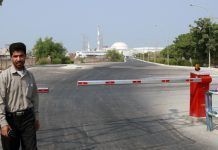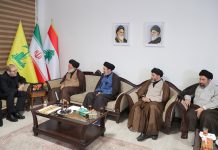Criminal defense lawyers in Iran are being persecuted, harassed and imprisoned for representing their clients, the UK Law Society has said in a submission filed with the United Nations Human Rights Council for its upcoming session, which begins on Jan. 20, 2025 in Geneva.
The report was prepared for the fourth cycle of the Universal Periodic Review (UPR) of the Islamic Republic of Iran, a UN entity which carries out regular reviews of the human rights records of all 193 UN member states.
The submission was written by: the Law Society, the membership body for solicitors in England and Wales; Lawyers for Lawyers, a Netherlands-based not-for-profit lawyers’ organization; and the Iran Human Rights Documentation Center, a US-based project documenting human rights abuses in Iran.
“It is evident that the Iranian state machinery has prevented lawyers from doing their job when the state feels threatened,” Law Society President Richard Atkinson said in a press release for the submission. “We are deeply concerned that human rights and criminal defense lawyers in Iran are targeted and persecuted for defending their clients. Iranian lawyers face harassment, illegitimate prosecutions, unfair trials and arbitrary deprivation of liberty. Many of these lawyers have faced threats from security forces and national security-related charges.”
The report identified several legal groups as being disproportionately targeted in Iran including human rights lawyers, lawyers working on sensitive cases, women lawyers, and lawyers who defended clients charged with offenses connected to the 2022 ‘Woman, Life, Freedom’ protests.
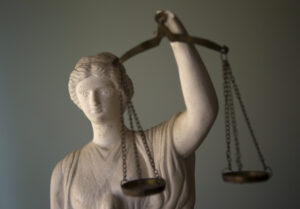
“Most prominently, during the ‘Woman, Life, Freedom’ protests in 2022, at least 66 lawyers were arrested for representing women’s rights protestors,” Atkinson said. “This crackdown led to the imprisonment of 11 lawyers, while others were forced to flee the country. At least three female lawyers reportedly died under suspicious circumstances related to the protests.”
Iran’s regime has been condemned in recent years for its crackdowns on lawyers representing human rights activists and protestors. Iran was designated a ‘closed’ country for the right to protest and scored 18 out of 100 for its detention of protestors in 2024, according to an annual report by South Africa-based civil society alliance Civicus.
The joint submission to the UN included information provided by citizens and lawyers in Iran. The lawyers said that while Iran’s government had previously said it supported measures recommended by the UN to protect lawyers, it had “consistently failed to uphold the necessary guarantees for the proper functioning of the legal profession.”
“We hope the UN recognizes the climate of terror that lawyers face in Iran and uses this evidence to call for an end to the harassment of lawyers,” Atkinson said.
The Law Society raised concerns about the treatment of lawyers in Iran at the UN’s Geneva headquarters on Nov. 21, alongside prominent human rights attorney Dr. Mohammad Moghimi.
Iranian Human Rights Lawyers Criticise Clerical Leaders Amid Unrest
Moghimi was imprisoned in Rajaee Shahr Prison in 2015 for shaking the hand of his client, artist and civil activist Atena Farghadani. He was released four days later.
Farghadani, who has faced multiple arrests and convictions since 2009 for her activism, was sentenced to six years in prison on June 10 for producing a cartoon titled “Class Inequality.” Her sentence was reduced to 8 months following an appeal, according to a Dec. 9 report by the US-based Human Rights Activists News Agency (HRANA).
Moghimi has defended several high profile political prisoners and human rights campaigners including award winning lawyer Nasrin Sotoudeh, and founded Free Iran’s Lawyers, an organization which counters “repression of Iranian lawyers in Iran.”
During the November meeting in Geneva, Moghimi and the Law Society called on member states to engage with the UPR of Iran.
“Some states indicated they closely follow the human rights situation in Iran and will engage in the UPR process,” a Law Society spokesperson told Kayhan Life. “Discussions in Geneva focused on the systemic persecution of legal professionals and interference with the independence of the legal profession in Iran. Specifically, we highlighted the increasing control over the Iranian Bar Association (IBA) by the Ministry of Justice and the Islamic Revolutionary Guard Corps’ intelligence. This control ranges from background checks of candidates for Board positions to scrutiny of the IBA’s operations and the judicial credentials of lawyers.”
The independence of the legal profession and the judiciary was criticized in the report, which described the inappropriate reach of Iran’s parliament into judicial affairs, as well as the Supreme Leader Ayatollah Ali Khamenei’s powers set out in Iran’s constitution to appoint judges and oversee the judiciary.
Concerns about a ‘parallel’ bar association created and controlled by the government were raised at a conference held at the Law Society’s headquarters in London in January.
“I’m told thousands of former security, intelligence and government people within the system, as they have reached their thirties and forties, have been given permits to practice as lawyers, but we have no idea what kind of law training they have had,” Hadi Ghaemi, Executive Director for the Center for Human Rights, said at the event. “The original Bar Association, we believe, has about 60,000 practicing members of that order in the country. I was asking how many people have been issued law permits under this new scheme, and my colleagues tell me probably about the same.”
The legal organizations also noted the increased use of arbitrary prosecution for lawyers.
“Numerous lawyers continue to be tried before the Revolutionary Courts, notably under Article 500 (disseminating propaganda against the Islamic Republic), Article 498 (acting against national security), Article 698 (agitation of public opinion by spreading false information against the Islamic Republic) and Article 638 (encouraging corruption and indecency) of the Islamic Penal Code (IPC), because of their work representing their clients,” the report said. “There have also been reports of the Iranian authorities having recourse to acts not defined under the IPC to hold lawyers criminally liable.”
Recommendations in the report include: urging Iran’s government to allow lawyers to perform their duties free from harassment; the release of all arbitrarily detained lawyers; to uphold the right to a fair trial; and to stop government interference with Iran’s bar association and judiciary.



